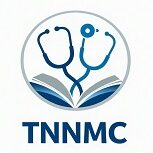Indiana faces a significant demand for registered nurses, a trend that is projected to continue in the coming years. This environment underscores the importance of a highly educated nursing workforce capable of meeting the evolving healthcare needs of the state’s population. For licensed Registered Nurses (RNs) in Indiana holding an Associate Degree in Nursing (ADN) or a nursing diploma, obtaining a Bachelor of Science in Nursing (BSN) can be a pivotal step towards enhanced career opportunities and professional growth. This guide serves as a comprehensive resource for these nurses, providing insights into the value of a BSN in Indiana and highlighting some of the top RN-to-BSN programs available, including flexible online options. By understanding the advantages of a BSN and the key factors in choosing the right program, working nurses can confidently navigate their educational journey and advance their careers within Indiana’s dynamic healthcare landscape.
Why Move from RN to BSN in Indiana
The decision to pursue a BSN offers numerous advantages for registered nurses practicing in Indiana. One significant aspect is the potential for improved patient outcomes. Hospitals that have achieved Magnet status, a prestigious recognition indicating high-quality nursing care, often prioritize the hiring and retention of nurses with BSN degrees. These institutions, such as Deaconess Hospital, Riley at IU Health, and IU Health West, have demonstrated a commitment to nursing excellence and superior patient care. The emphasis on a more educated nursing workforce in these leading hospitals suggests a strong connection between BSN-level education and the delivery of high-quality patient care.
Furthermore, a BSN can open doors to increased opportunities for leadership roles within the nursing profession. Baccalaureate-prepared nurses develop a broader understanding of healthcare systems, leadership principles, and evidence-based practice, equipping them to take on more responsibility and influence patient care at a higher level. Indiana State University’s BSN program, for example, is recognized as a foundational preparation for professional nursing practice, with graduates prepared to assume beginning leadership roles. Similarly, Indiana University’s School of Nursing highlights leadership as a potential career path for BSN graduates. Advanced degrees in nursing, such as a Master of Science in Nursing (MSN) with a focus on Nursing Education Leadership or Healthcare Systems Leadership, often require a BSN as a prerequisite, further underscoring its value for career advancement.
The financial benefits of obtaining a BSN are also considerable for RNs in Indiana. Data indicates that nurses with a BSN in Indiana generally earn a higher average annual salary compared to those with an ADN. While specific salary figures may vary depending on the source and year, the trend of increased earning potential with a BSN is consistent. For instance, one report from 2013 indicated that BSN-prepared RNs in Indiana earned significantly more than their ADN counterparts. Even more recent data from May 2025 shows an average annual pay for a BSN in Indiana exceeding $86,000. This higher earning potential, coupled with opportunities for career growth into specialized and advanced practice roles that often require a BSN, makes pursuing this degree a sound investment for RNs in Indiana.

Employers in Indiana, particularly Magnet-designated hospitals, increasingly prefer and often expect their nurses to hold a BSN. The pursuit of Magnet recognition signifies a hospital’s commitment to high standards of nursing quality, and a key component of this is having a well-educated nursing staff. Hospitals like Riley at IU Health report that a significant majority of their nurses hold a BSN degree, demonstrating the value placed on this level of education. This preference translates to more competitive job prospects and potential for career advancement within these leading healthcare institutions for nurses who hold a BSN.
Furthermore, ongoing healthcare initiatives and legislative efforts in Indiana underscore the importance of a well-educated nursing workforce. While recent legislation has focused on addressing the nursing shortage by increasing the overall number of nurses entering the field, the underlying goal is to ensure a competent and skilled workforce capable of meeting the state’s healthcare demands. Although these initiatives may not directly mandate BSNs for all RN positions, they highlight the state’s commitment to strengthening its nursing workforce, which inherently values higher levels of education like the BSN.
Key Factors When Choosing an Indiana RN-to-BSN Program
When selecting an RN-to-BSN program in Indiana, several critical factors should be carefully considered to ensure the chosen program aligns with individual needs and career goals.
Accreditation & Indiana State Board of Nursing (ISBN) Approval:
Accreditation is a fundamental aspect to evaluate. Look for programs that hold national accreditation from organizations such as the Commission on Collegiate Nursing Education (CCNE) or the Accreditation Commission for Education in Nursing (ACEN). This accreditation signifies that the program has met rigorous standards for quality and integrity. Additionally, while the Indiana State Board of Nursing (ISBN) primarily accredits pre-licensure nursing programs and does not directly review RN-BSN programs, it is prudent to ensure that the institution offering the RN-to-BSN program has its pre-licensure programs approved by the ISBN. This approval often indicates the institution’s overall good standing with the state’s nursing regulatory body. Resources like the Indiana Center for Nursing website may provide lists of accredited nursing schools in the state.
Curriculum Focus Areas:
The curriculum of an RN-to-BSN program builds upon the foundational knowledge gained in an ADN or diploma program, delving into areas critical for professional growth. These often include leadership and management principles, community and public health nursing, nursing research and evidence-based practice, and healthcare informatics. Consider programs that emphasize these areas, as they are increasingly vital in today’s complex and evolving healthcare landscape. For instance, understanding leadership concepts prepares nurses for roles with greater responsibility, while knowledge of community health allows for a broader impact on population health.
Clinical/Practicum Logistics & Local Preceptors:
While RN-to-BSN programs typically have less extensive clinical requirements compared to pre-licensure BSN programs because students are already practicing RNs, it is essential to understand the specific clinical or practicum components of each program. Inquire about the number of required hours, the focus of these experiences (e.g., leadership projects, community health initiatives), and the support provided in finding suitable preceptors. Many online programs are designed to allow students to complete their practicum hours in their current work environment, under the supervision of an approved preceptor. Clarifying these logistics upfront is crucial for working nurses to effectively plan their studies.
Program Length, Pacing, and Entry Points:
RN-to-BSN programs offer various formats to accommodate the diverse needs of working nurses. These include accelerated full-time options, as well as part-time programs that can be completed at a more flexible pace. Online and hybrid programs are particularly attractive for their flexibility, allowing nurses to balance their studies with work and personal commitments. Program lengths typically range from 12 to 24 months, depending on the format and the number of transfer credits accepted. Consider the program’s entry points (e.g., fall, spring, summer) to find one that aligns with your desired start timeline.
Transfer Credit and Prior-Learning Policies:
Explore the program’s policies regarding the acceptance of transfer credits from previous college coursework. Many RN-to-BSN programs are designed to build upon the knowledge and skills acquired in an ADN program, and they often have generous transfer credit policies. Additionally, inquire about any opportunities to receive credit for prior learning, which could potentially include professional experience or military training, particularly relevant for veteran or military RNs.
Tuition, Scholarships, Employer Reimbursement:
The cost of an RN-to-BSN program is a significant consideration. Research the tuition fees, any additional costs, and the available financial aid options. Explore scholarship opportunities specifically for nursing students, such as those offered by the Indiana Center for Nursing. Crucially, investigate whether your current employer offers tuition reimbursement programs or other forms of financial assistance for nurses seeking to advance their education. Many hospitals recognize the value of having a BSN-prepared nursing staff and provide financial support to encourage their RNs to pursue this degree.
Student Support & Online Learning Technology:
For nurses opting for online RN-to-BSN programs, the availability of robust student support services and user-friendly online learning technology is paramount. Inquire about the resources offered to online students, such as academic advising, online tutoring, virtual libraries, career services, and technical support. A well-designed online learning platform that is accessible and easy to navigate can significantly enhance the learning experience for busy professionals.

Top RN-to-BSN Programs in Indiana (≥ 8)
The following list represents some of the top RN-to-BSN programs available in Indiana, encompassing various delivery formats to suit different learning preferences and schedules.
Indiana University – website
Delivery: 100% online
Length: Varies based on transfer credits and pace
Admissions: Active RN license, graduation from an accredited ADN or diploma program
Accreditation: CCNE
Hallmarks: Flexible online format, multiple start dates, part-time and full-time options, strong reputation of the IU School of Nursing.
Outcomes: IU School of Nursing is consistently ranked among the top nursing programs in the U.S.
University of Southern Indiana – website
Delivery: 100% online
Length: Typically completed in 12 months (accelerated) or longer at a part-time pace
Admissions: Active RN license
Accreditation: CCNE
Hallmarks: Affordable tuition, flexible online format, multiple start dates, supportive learning environment with expert faculty.
Outcomes: USI Nursing programs boast a high NCLEX pass rate for their pre-licensure programs.
University of Indianapolis – website
Delivery: 100% online and hybrid options available
Length: Varies based on pace
Admissions: Active RN license, graduation from an accredited ADN program
Accreditation: CCNE
Hallmarks: Flexible online and hybrid formats, focus on holistic nursing practices, consistently higher NCLEX pass rates than the national average for their pre-licensure programs.
Indiana State University – website
Delivery: Primarily online with some potential on-campus components
Length: Varies based on transfer credits and pace
Admissions: Active RN license, graduation from an accredited ADN program
Accreditation: CCNE
Hallmarks: Focus on preparing nurses for leadership roles, opportunities for professional development, recognized as a basic preparation for professional nursing practice.
Purdue University Global – website
Delivery: 100% online
Length: Can be completed in as few as 9 months depending on transfer credits
Admissions: Active RN license
Accreditation: CCNE
Hallmarks: Flexible online format designed for working nurses, multiple start dates, access to a wide range of online resources.
Marian University – website
Delivery: 100% online
Length: Can be completed in as few as 12 months
Admissions: Active RN license, graduation from an accredited ADN program
Accreditation: CCNE
Hallmarks: Focus on ethical and values-based nursing education, flexible online format, supportive learning environment.
Valparaiso University – website
Delivery: 100% online and accelerated options available
Length: Varies based on pace
Admissions: Active RN license, graduation from an accredited ADN program
Accreditation: CCNE
Hallmarks: Focus on holistic care, small class sizes, supportive faculty, flexible online format designed for working professionals.
Ball State University – website
Delivery: Primarily online
Length: Can be completed in as little as one year
Admissions: Active RN license
Accreditation: CCNE
Hallmarks: Flexible online program, focus on evidence-based practice and leadership skills, offers various specialization options within the BSN curriculum.
Tips for Thriving in an RN-to-BSN Track
Balancing work, life, and studies in an RN-to-BSN program requires effective strategies and a proactive approach.
Time-Management Tactics:
Shift work can present unique challenges to studying. Develop a structured schedule that allocates specific time slots for coursework, factoring in your work hours and personal commitments. Utilize calendars and reminders to stay organized and prioritize tasks. Break down large assignments into smaller, manageable steps to avoid feeling overwhelmed.
Building Rapport with Indiana Preceptors & Faculty:
Actively engage with your preceptors during clinical experiences and seek their guidance and feedback. Build professional relationships with faculty members by participating in online discussions, attending virtual office hours, and seeking clarification on any questions or concerns. Networking with Indiana-based healthcare professionals can also provide valuable insights and future opportunities.
Leveraging Hospital Tuition Programs:
Explore the availability of tuition reimbursement or assistance programs offered by your employer. Many Indiana hospitals support their nurses’ professional development and may provide financial aid for pursuing a BSN. Understand the application process and requirements for these programs early in your RN-to-BSN journey.
Maximizing Online Learning Platforms & Tutoring Centers:
Familiarize yourself with the online learning platform used by your chosen program and utilize all available resources, such as recorded lectures, discussion forums, and online libraries. Take advantage of any online tutoring services or writing centers offered by the institution to enhance your academic performance.
Creating a Supportive Study Environment:
Designate a quiet and comfortable space for studying at home, free from distractions. Ensure you have a reliable internet connection and all the necessary technology and materials. Communicate your study schedule to family and friends to minimize interruptions.
Connecting with Peers:
Engage with fellow students in your RN-to-BSN program through online forums or study groups. Sharing experiences, challenges, and successes with peers can provide valuable support and motivation throughout your educational journey.

Common Concerns & Misconceptions
Several common concerns and misconceptions may arise when considering an online RN-to-BSN program.
- Employer Acceptance of Online BSNs: There is a widespread misconception that online degrees are not as well-regarded as traditional on-campus degrees. However, a BSN earned from an accredited online program is generally well-respected by employers in Indiana and across the nation. Magnet hospitals and other leading healthcare institutions recognize the rigor and quality of accredited online nursing programs.
- Adequacy of Clinical Experience: Another concern revolves around the adequacy of clinical experience in online RN-to-BSN programs. These programs are designed for already licensed RNs who have significant clinical experience. The focus of the clinical or practicum component in these programs often shifts towards leadership, community health, or evidence-based practice projects, leveraging the student’s existing clinical skills.
- Academic Rigor Compared with ADN Training: Some may perceive RN-to-BSN programs as less academically rigorous than traditional BSN programs. In reality, BSN programs, regardless of delivery format, build upon ADN education by exploring nursing concepts in greater depth, emphasizing critical thinking, research, and leadership skills. The curriculum is designed to prepare nurses for a broader scope of practice and advanced roles.
- Time Commitment and Balancing Work-Life-Study: Many working nurses worry about the time commitment required for an RN-to-BSN program and the challenges of balancing it with their existing responsibilities. Online programs offer the flexibility to study at your own pace and on your own schedule, making it more manageable for busy professionals. Effective time management and utilizing available support resources can further ease this concern.
Conclusion
Choosing the right RN-to-BSN program in Indiana is a significant decision that can profoundly impact a registered nurse’s career trajectory. By understanding the clear benefits of a BSN in the Indiana healthcare market, including improved career prospects, leadership opportunities, and enhanced earning potential, RNs can make an informed choice about their future. When evaluating programs, it is crucial to consider factors such as accreditation, curriculum, clinical requirements, program format, cost, and student support services. Taking the time to verify the accreditation status of the pre-licensure program with the Indiana State Board of Nursing, speaking with admissions counselors at prospective schools, and carefully planning the next career step will set working nurses on a path towards achieving their professional goals and making an even greater impact on the health and well-being of the Indiana community.



